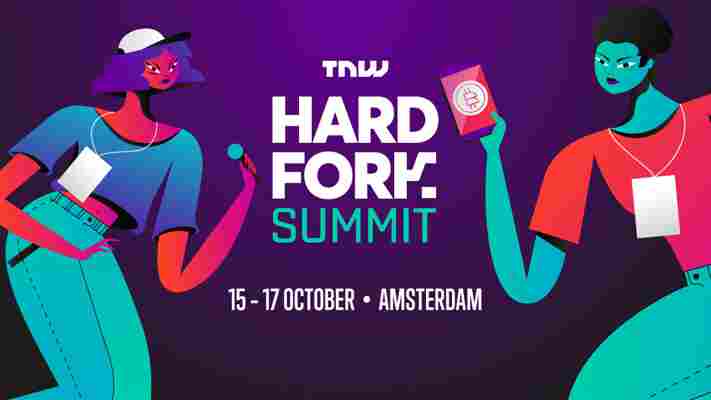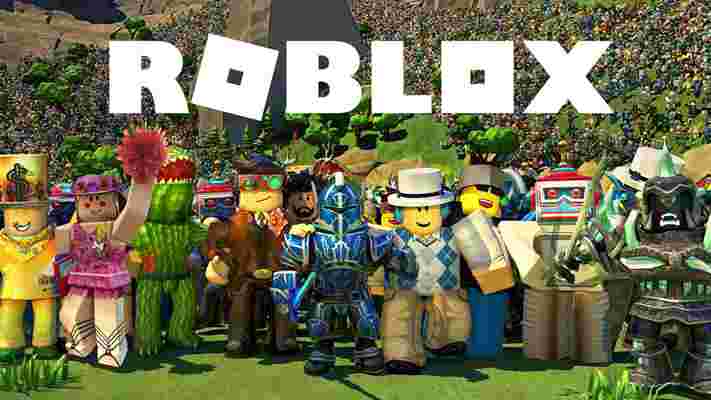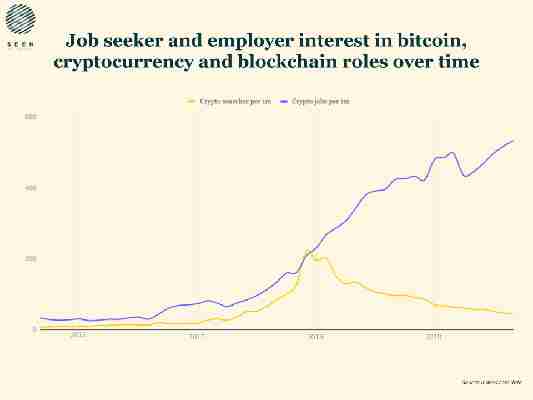Last month, TNW hosted another successful edition of Hard Fork Summit . We invited the blockchain, fintech, and the business community to share their knowledge and network for three days in Amsterdam. Through inspiring keynotes and panel discussions, we learned from leading experts how blockchain will continue to transform industries like banking and business operations. Attendees and speakers also expanded their network over drinks during evening events spread across the city.

In case you missed #HardForkSummit, here’s a recap of all the exciting things that happened.
Two days of content
At Hard Fork Summit, we welcomed over 50 inspiring speakers to share their knowledge through keynotes and panel discussions, including Kavita Gupta, visiting scholar and lecturer at Stanford University, Hyperledger’s Brian Behlendorf, Ripple’s Dan Morgan, and many more.
On our last day, which focused on the topic of business, Larry Sanger took to the stage and announced his new project. Sanger is the co-founder of Wikipedia and the former CIO of Everipedia, the world’s first encyclopedia on the blockchain. During his #HardForkSummit keynote, he announced the launch of the Knowledge Standards Foundation – a nonprofit, open source, and distributed encyclopedia project with no center or leader, making it just as open as the rest of the internet.
On the Practical Stage, leading companies and promising startups shared their vision for blockchain’s future. Celsius Network’s co-founder and COO, Daniel Leon, explored blockchain’s future impact on banking. Emanuele Francioni and Jelle Pol from Dusk Network discussed how their blockchain can redesign the financial sector through eliminating a need for middlemen. We also heard from our very own Matthew Beedham , a blockchain and cryptocurrency journalist, on how Hard Fork’s news articles provide a bullshit-free perspective in a problematic news industry.
Three nights of side events
After our curated day program, attendees and speakers joined evening side events across all of Amsterdam, including Hard Fork Summit: Future Music, which explored the intersection of blockchain, music, and environmentalism.
At TNW’s tech hub, TQ, a movie screening of Blockchain City was organized, and leading companies like Startup Amsterdam hosted their own networking events.
Exclusive interviews
Another great addition to Hard Fork Summit was TNW TV, which livestreamed interviews with some of our speakers. Hard Fork reporters David Canellis and Matthew Beedham hosted informal discussions with Mati Greenspan, Senior Market Analyst at eToro, Nicolas Cary, co-founder of Blockchainom, and more.
In case you missed it, check out his TNW TV interview:
Thank you to everyone who attended Hard Fork Summit and tuned in to TNW TV! Make sure to join us at our next big event, TNW2020 on June 18 and 19 .
Europe’s leading tech festival already has amazing speakers on the lineup, including Chris Messina, inventor of the hashtag, Jason Fried, co-founder and CEO of Basecamp, and Purna Virji, Senior Manager of Global Engagement at Microsoft. Don’t miss it!
What is Roblox, the big new gaming IPO darling?
Roblox, the kid-friendly gaming universe, made a great debut at Wall Street on Wednesday as the company’s share prices closed at $69.50 — a 43% rise from the initial trading price.

But what exactly is Roblox and why did it hold an IPO? Let’s take a look.
What’s Roblox?
Roblox is an online game platform where you can create your own games and play games made by others — think of it as a Minecraft competitor. The title has been around for a long while; the first PC version was released in 2006.
The company released versions for iOS, Android, and Xbox, in 2012, 2014, and 2015 respectively. The idea is to have your own avatar, make friends, buy clothes, and customize appearances and customize your appearance while playing and creating games using elements available in the expansive environment.
One of the ways Roblox is known in pop culture is its iconic “oof” sound when a player dies. The company had to discontinue briefly that sound because of a copyright dispute with the composer. However, last November both parties came to an agreement, but game developers had to pay $1 to include that sound in their creations.
While the game has been steadily receiving more attention over the last decade or so, the COVID-19 pandemic fuelled its popularity rapidly. A report from CNBC published last April notes the game saw a massive 40% surge in usage in March 2020.
Last June, the game also added new features such as virtual private birthday parties and social gatherings for kids and their relatives to hang out safely in the online world. In November, famed artist Lil Nas X held a virtual concert on the game platform — just like Travis Scott on Fortnite .
How did it reach the IPO stage?
In February 2020, the company raised $150 million from Andreessen Horowitz with a valuation of $4 billion.
According to analytics firm SensorTower, users downloaded the game 159.6 million times from the App Store and Play Store last year, registering a 43% year-on-year growth. It was also the highest-earning mobile game in the US during the holiday season with $6.6 million gross revenue.
All of this led to its newest financing round in January, where it held a direct listing offering (DPO), allowing existing investors to sell some shares. The company raised $520 million trough this round at a valuation of a whopping $29.5 billion.
Roblox initially decided to go public in December, but delayed it and decided to hold a DPO first. Finally, it was listed on the New York Stock Exchange on March 10.
As CNBC reported, while the company was worth $38.26 billion at closing, its restricted shares surged its valuation to $45.3 billion .
In a note last week, the company said that it’s expecting to register revenue between $1.44 billion and $1.51 billion, making its year-on-year growth 56% to 64%.
Blockchain devs looking for work are spoiled for choice right now
Despite regulatory concerns, businesses are still pushing forward and hiring for blockchain and cryptocurrency positions.

Based on a report from job site Indeed , there is less interest from candidates in blockchain and cryptocurrency roles, as searches for the jobs are on the decrease. On the other hand, Indeed says employer demand has “skyrocketed.”
To come to this conclusion, Indeed analyzed the “percentage change in the share of job postings and share of job searches per million for roles related to Bitcoin, cryptocurrency and blockchain.”
Between September 2015 and September 2019 the number of cryptocurrency and blockchain-related jobs per million increased by over 1,400 percent.
Across that same time period though, searches only increased by 469 percent. What’s more, candidate interest in the field has been on a downward trend since 2018.


Over the past year, cryptocurrency job postings per million have increased by 26 percent. Despite this, the number of searches per million have decreased by 53 percent.
This is the first time in four years that employer demand has gone up but candidate demand has gone down.
Big business gets the job done
As you might expect, the top five jobs in blockchain and cryptocurrency are for engineers, developers, and software architects.
Further to an investigation conducted by Hard Fork earlier this year, the top blockchain and crypto employers are old-school corporate firms.
According to Indeed, Deloitte, IBM, and Accenture are the top three employers in the decentralized tech.
The likes of Ernst & Young, JP Morgan Chase, and Cisco also make the top 15 companies doing the most hiring for Bitcoin and blockchain jobs.
Based on its findings, Indeed expects these trends to continue into next year, regardless of the regulatory uncertainty facing some projects, like Facebook’s Libra.
With all that in mind, it looks like there’s never been a better time to branch out and find a new career. That is, if you have development skills in Python, Hyperledger, and Ethereum’s Solidity, and want to work in blockchain -based tech.











